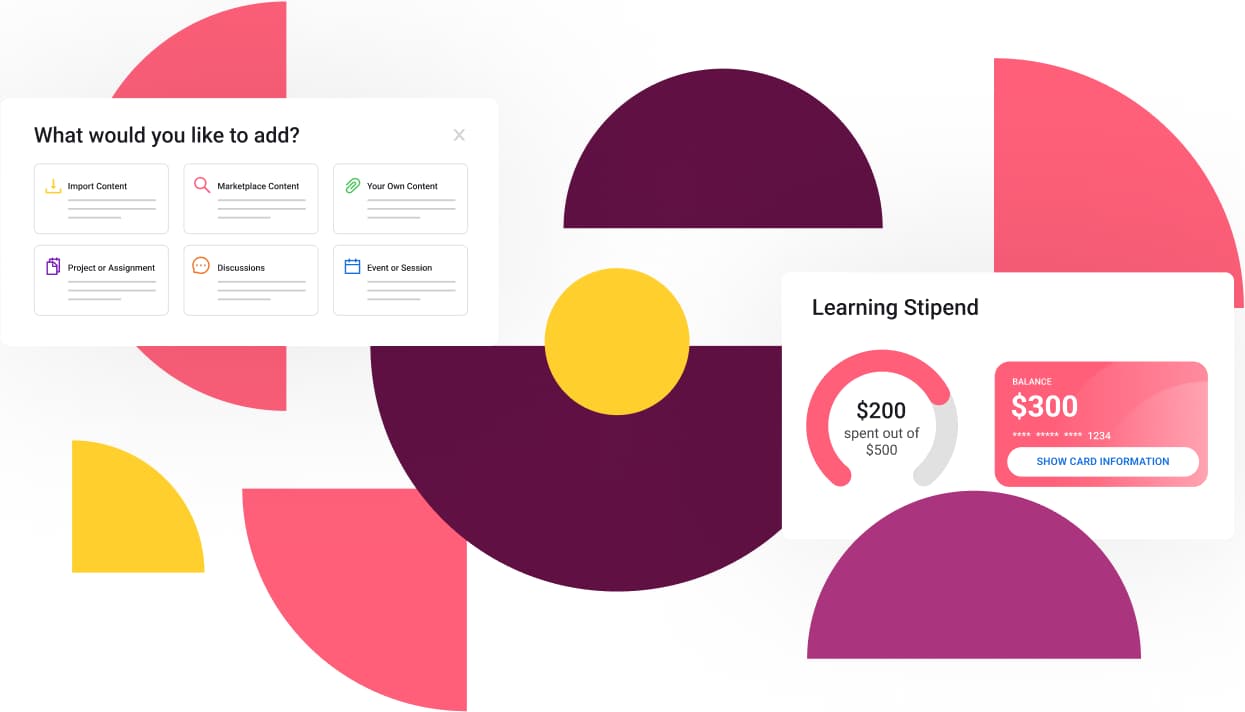Are Millennial and Gen Z Workers As Elusive As Companies Think?
If Gen Zs wear tuxes to see Minions: The Rise of Gru in theaters, and millennials invest in their “fur babies” rather than having kids, how are we supposed to know what they want in the workplace and their careers?
For some insight, Learn In conducted a survey to understand millennial and Gen Z workers. We targeted 18-30-year-olds in the US, with an average income of $50-$100K, and asked them to rank what they wanted from their employers.
Our findings may intrigue you if your company wants to appeal to the next crop of workers and make some headway in the current war for talent. While no generational survey can capture the nuances of each individual, these types of surveys can help us understand younger workers. Similarly, our survey findings can help you identify what your company can do to attract and retain this younger generation of talent.

Mental Health—Above All Else
Companies must understand the importance of mental health to understand young workers. When asked, 60% of our survey respondents say they want comprehensive benefits that support mental, physical, social, and financial health. More specifically, 53% of respondents said they want to support via adequate days off, a space to be heard and recognized, and ample access to therapy.
The survey results reveal that mental health remains top of mind for both generations. This makes sense, as a Deloitte report found that 46% of Gen Zs are “stressed or anxious all or most of the time.” Younger and less established generations have been hit hard by life-altering events, like the looming recession and the environmental crisis. With these generations bearing the brunt of crisis after crisis, their workplaces must alleviate some stress by allowing them the space they need and the ability to get support when needed.
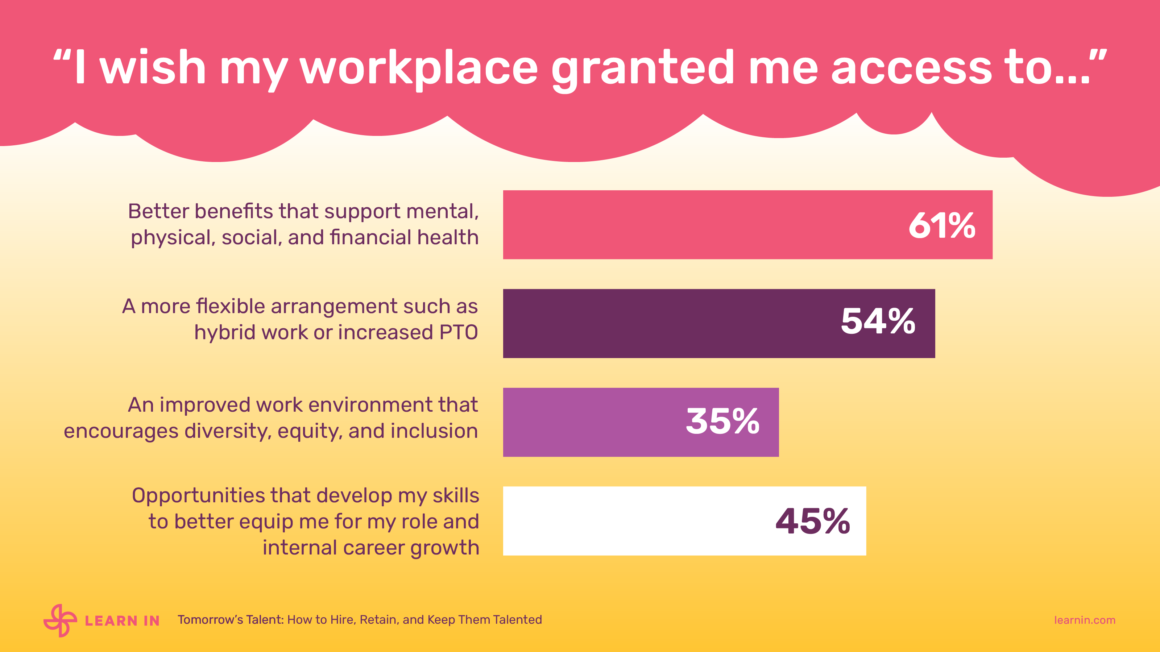
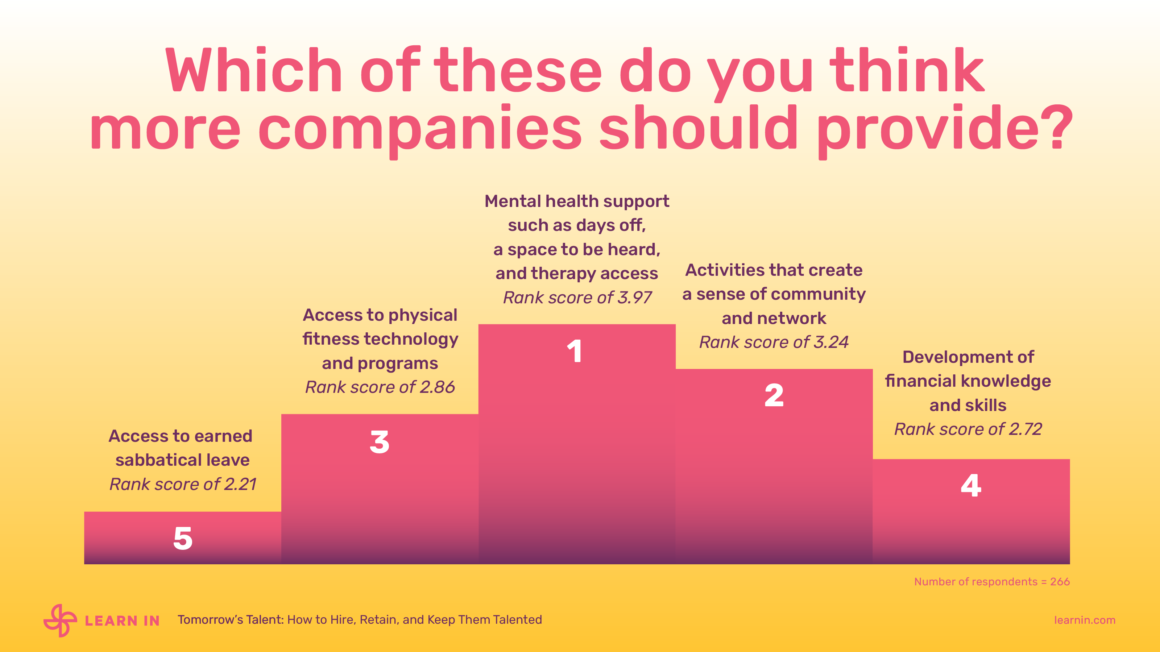
Career Growth Is The New King
For decades, compensation was king, but in a recent McKinsey survey, the king has been dethroned by career development and advancement. From an employee’s perspective, investing in one’s skills and career is the only way to ensure future opportunities.
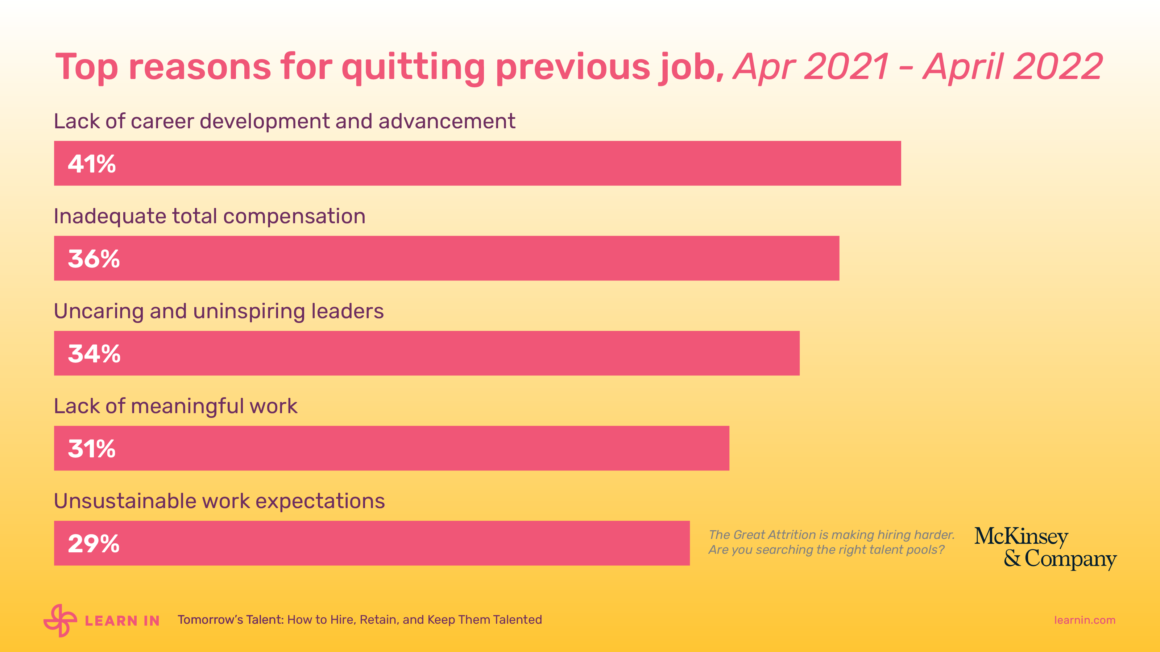
Over the past few years, we’ve closely monitored this demand for career growth. As a result, we designed our survey to dig deeper into what learning and development initiatives millennial and Gen Z workers are attracted to most. The top response (33%) was in-house skills development and growth opportunities, with the second most popular answer (28%) being “personal learning choice via a personal learning budget.”
This data suggests millennials and Gen Z workers want a personalized upskilling experience. They are unsatisfied with one-fits-all training programs. Instead, younger talent seeks integrated learning experiences curated around their current skill level to help them meet their long-term career goals. And employers must be vested in their employee’s success.
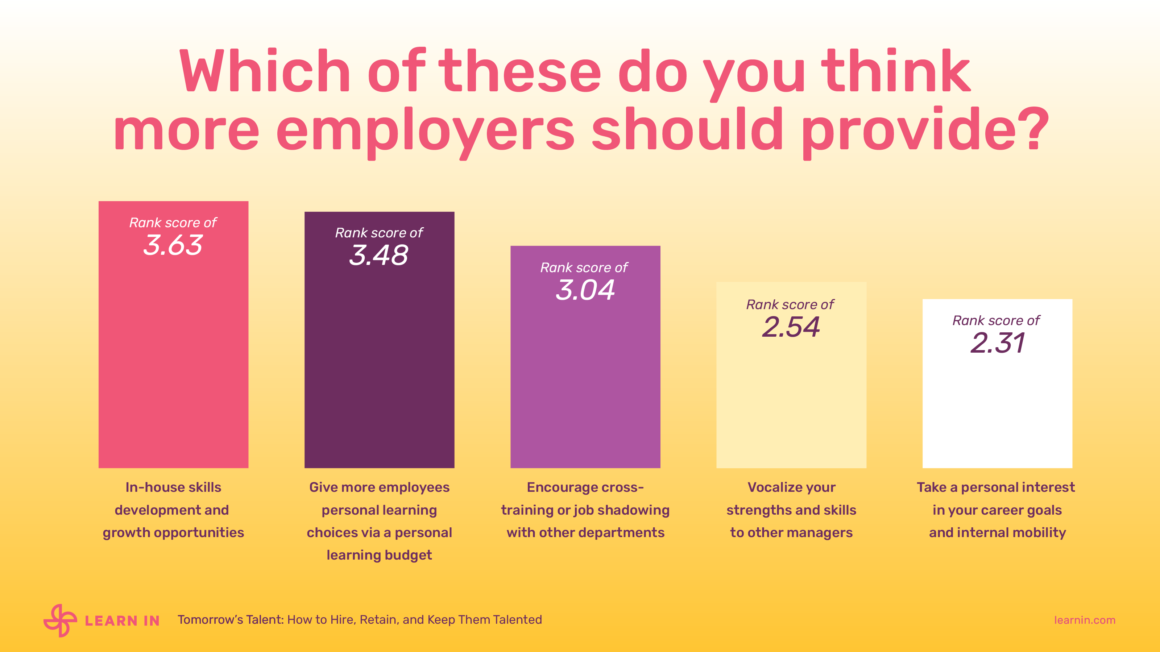
Flexibility Or Bust
There’s no doubt the pandemic and the shift to remote work have encouraged younger generations to pursue opportunities that continue to allow them to work from home. As a result, flexibility is a common trend in Gen Z and millennial worker surveys. For example, the Pew Research Center found, “Among those who are currently working from home all or most of the time, 78% say they’d like to continue to do so after the pandemic, up from 64% in 2020.”
Our survey asked what kind of flexibility millennial and Gen Z workers want. The option to work from home full-time was ranked first (47%). However, respondents also highly ranked hybrid work and increased PTO (53%), suggesting they dislike the limited flexibility of a typical 9-5 job.
While we tried to uncover a silver bullet, the data shows there isn’t one type of flexibility that they desire. Instead, it’s almost equally important to young workers where they work, during which hours, and how they can use their PTO. Companies must embrace all-around flexible work policies to appeal to millennial and Gen Z workers.
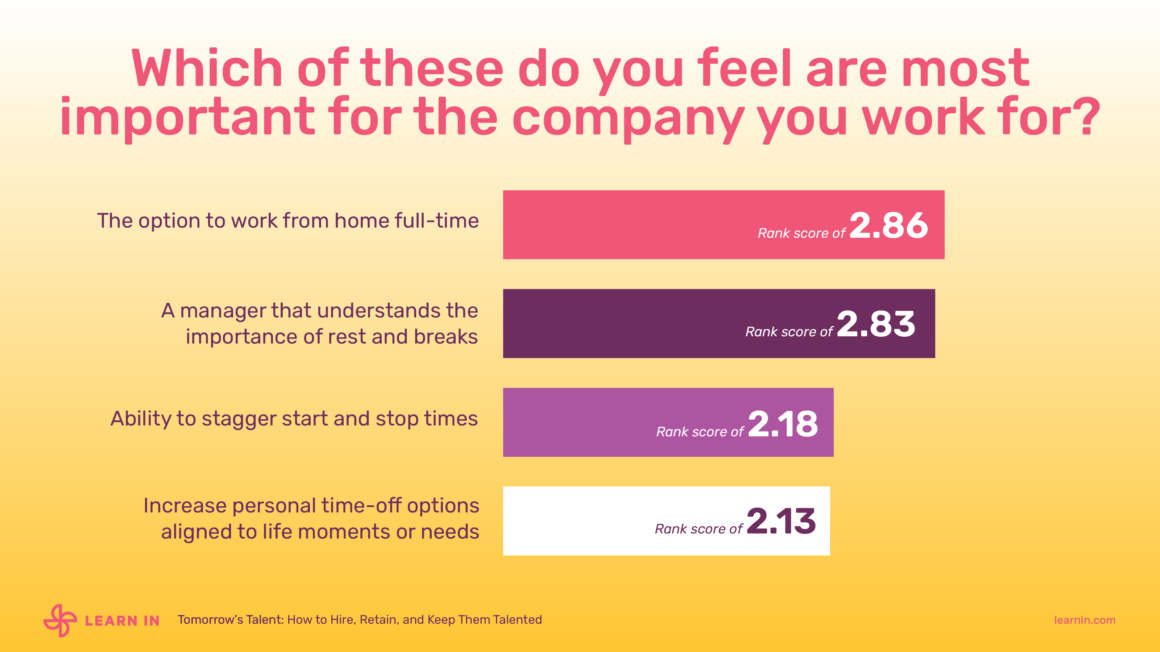
What Millennial and Gen Z Workers Want
The results speak for themselves: millennial and Gen Z workers want more autonomy and benefits that support their comprehensive and diverse lives.
As these two youngest generations become the majority of the workforce, it’s essential to understand their characteristics as employees and what they look for in an employer. While they have different approaches to working, meeting their needs isn’t as tricky as companies may think. And if companies can adapt to millennial and Gen Z workers’ needs, then maybe we’ll figure out what Gentleminions is.

